Start with twenty-seven cube-shaped boxes, lots of packing tape, and a
group of helpers.
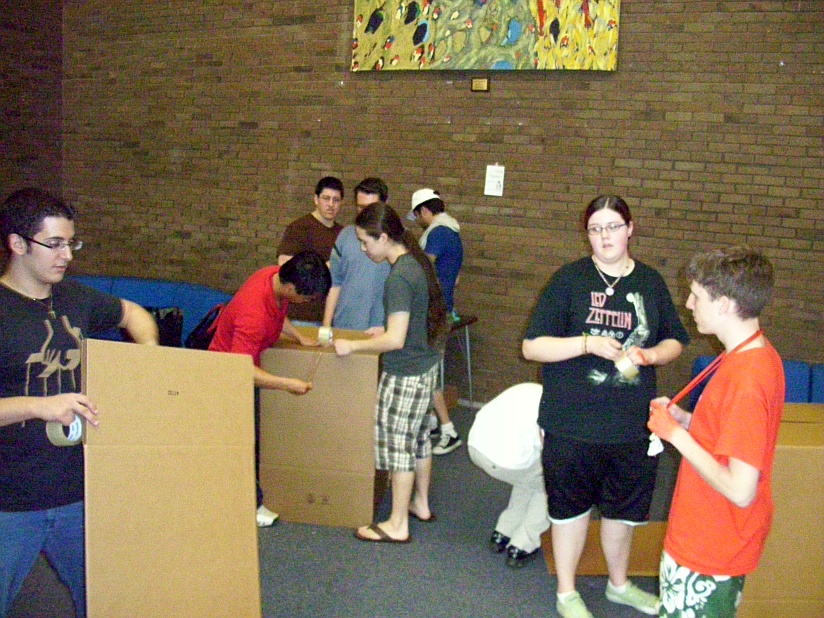
Phase 1 is to tape up the boxes into two-foot cubes. Neatness
counts.
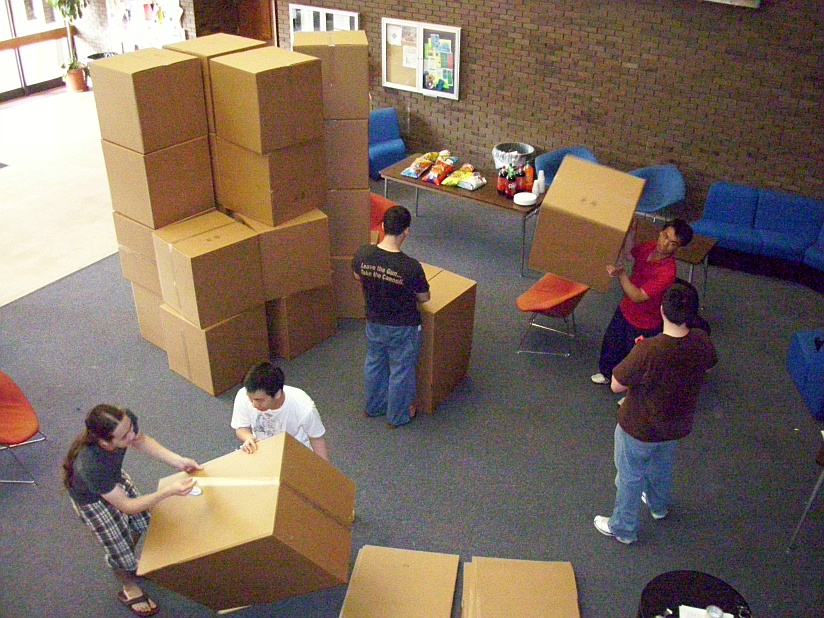
Work in a big space. We're in the Stony Brook University Computer
Science building lobby.
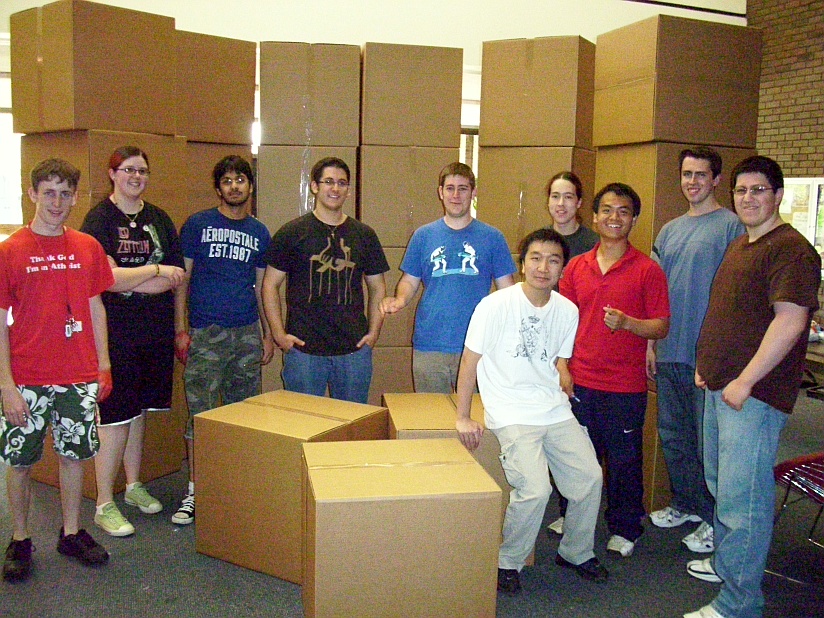
We've now proudly mastered the individual cube. (Don't sit on them!)
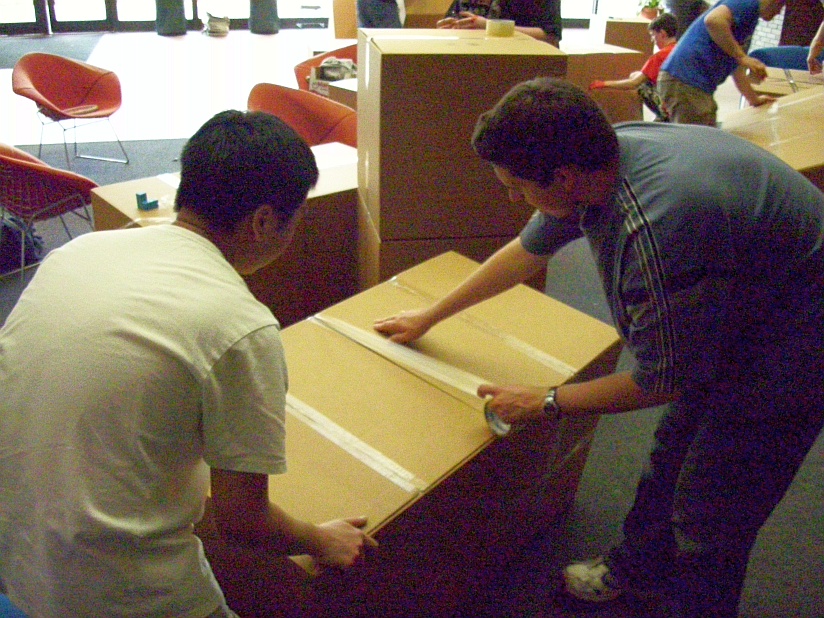
Phase 2 is to join cubes into the soma shapes, being careful to have
each team do a different shape.
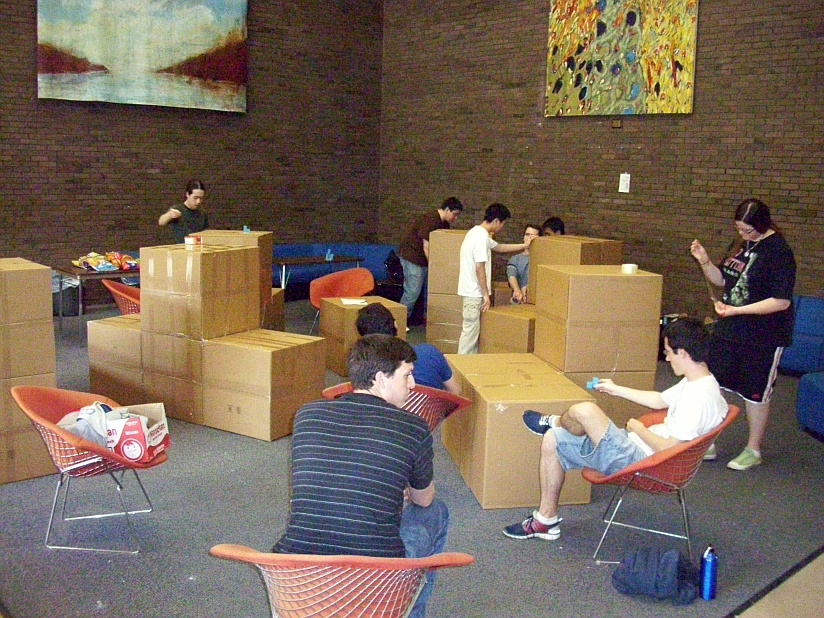
Having a set of small models helps, especially for getting the two
chiral ones correct.
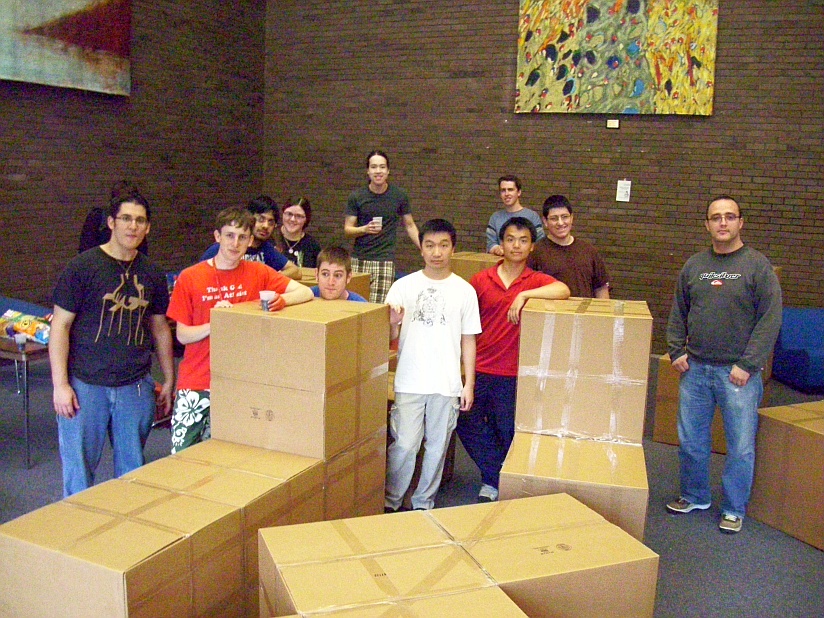
OK, all seven parts are done. End of phase 2.
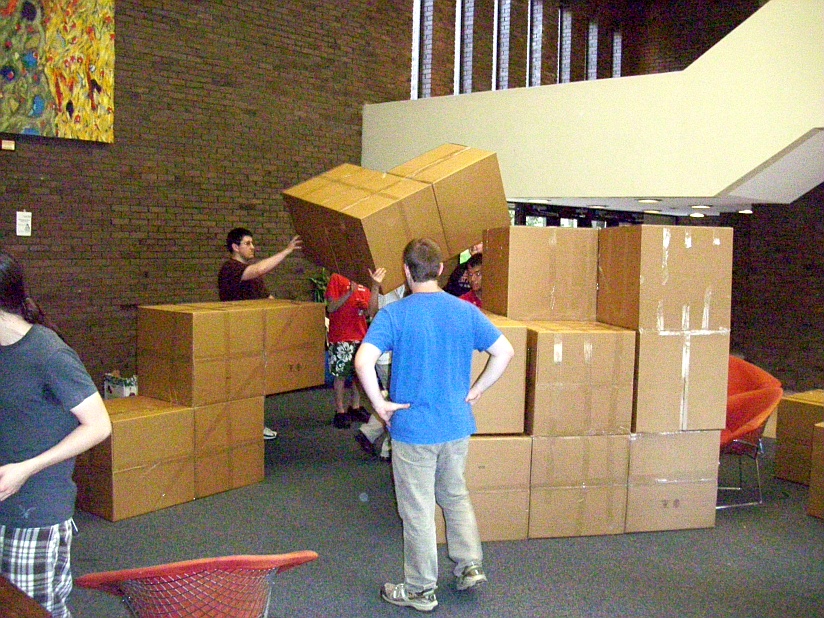
Phase 3: Build a 3-by-3-by-3 cube. How hard can it be when there
are 240 different solutions?
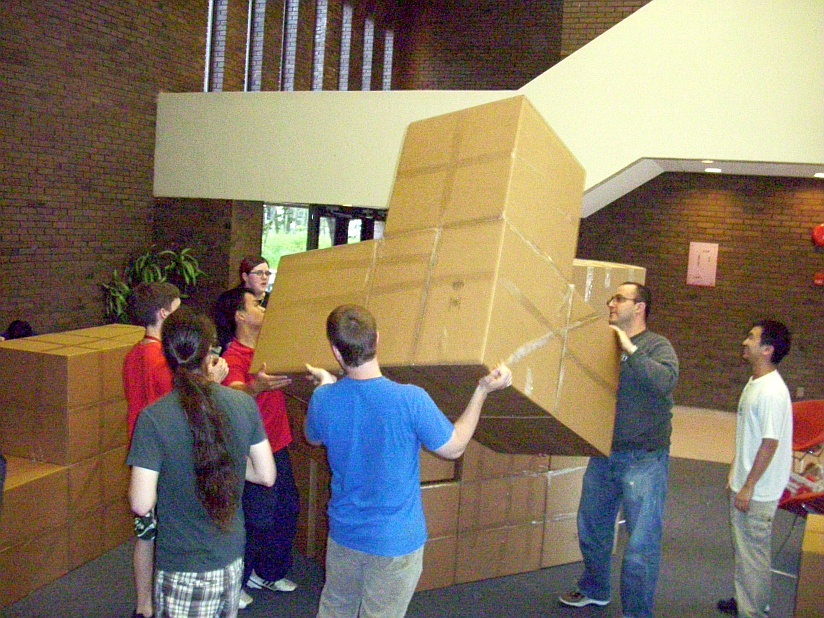
It is slower than you think, as each move takes group coordination and
communication.
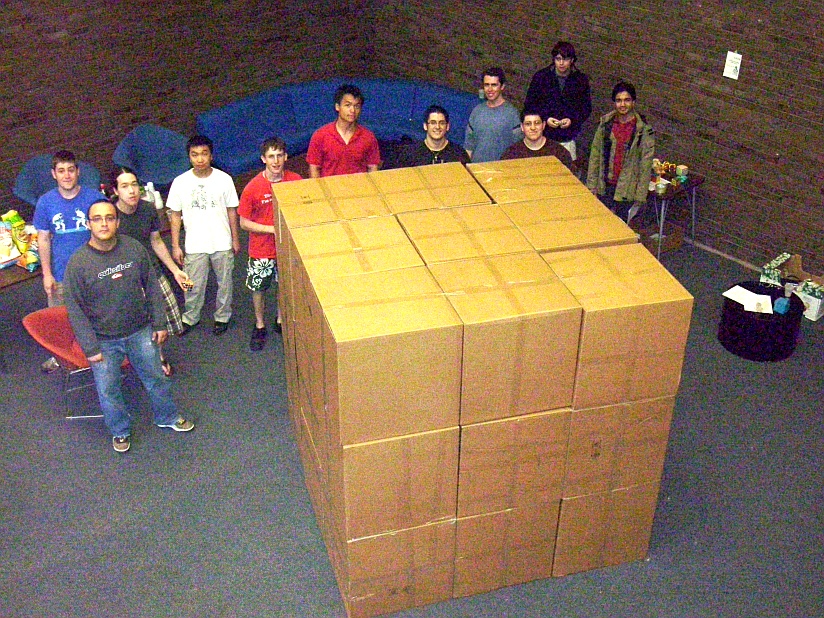
Ta-da!
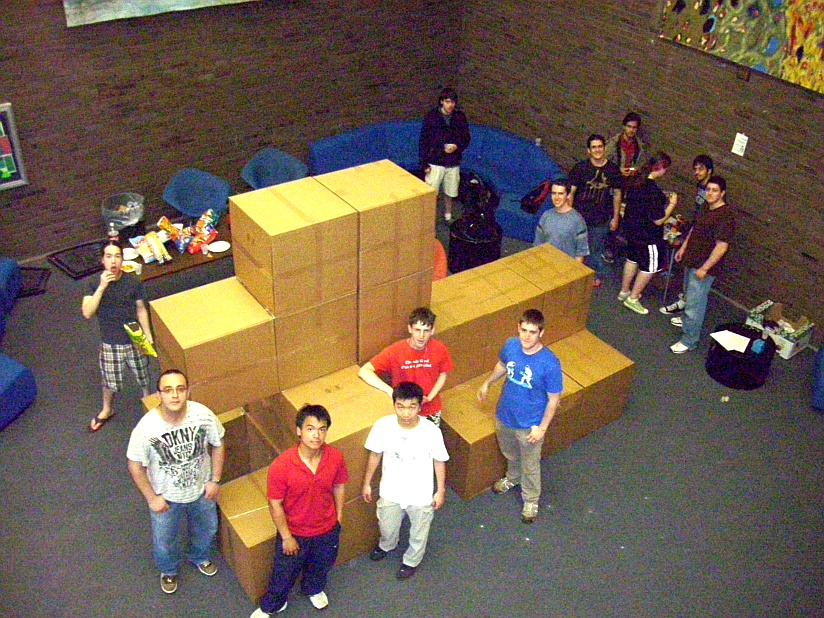
Phase 4: After the cube, there are lots of other challenges to
try.
This is either
The Dog or
The Sphinx, depending on who you
ask.
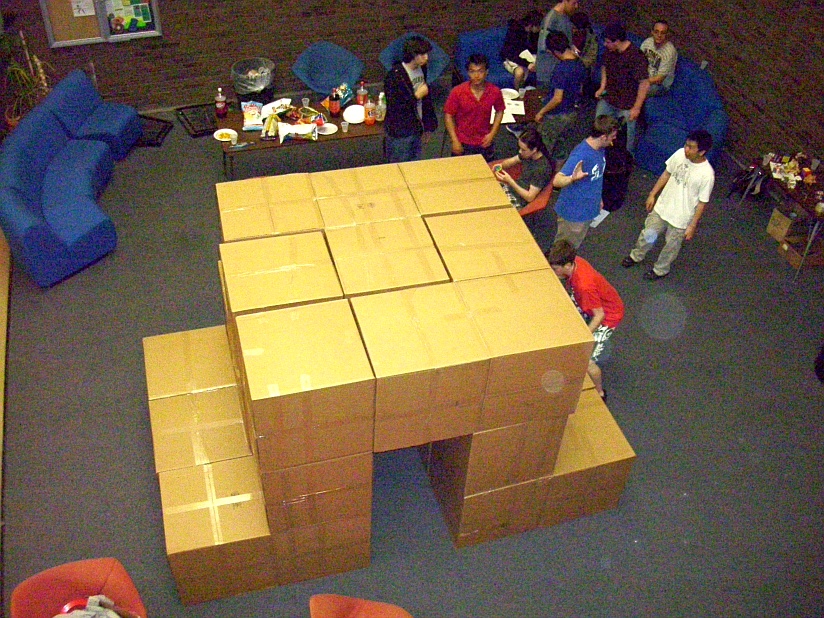
Here is
The Tunnel.
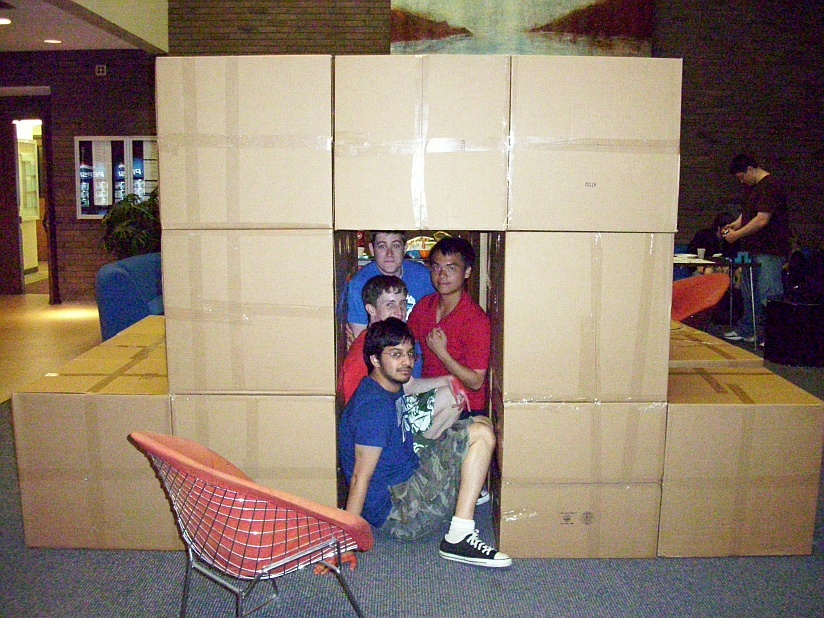
It's functional.
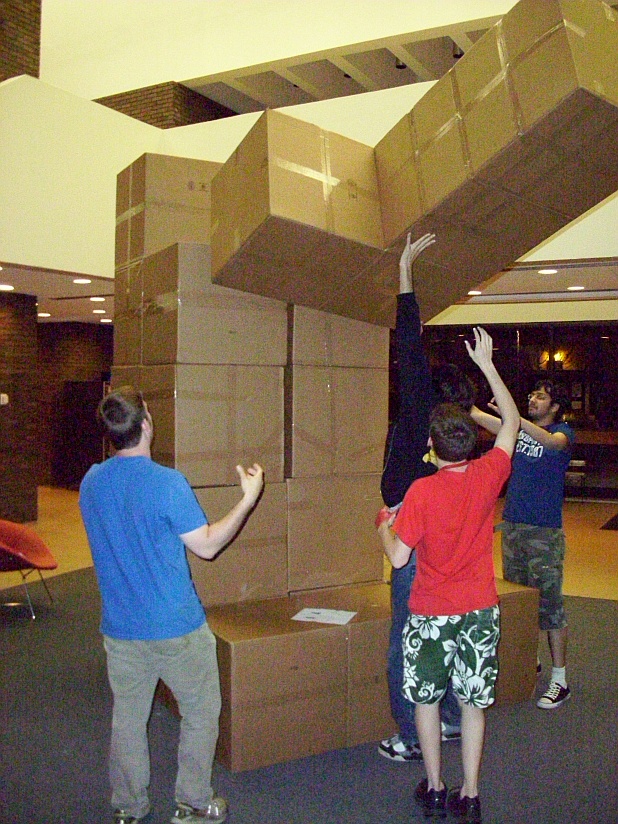
The top of
The Skyscraper
pretty high. What to do?
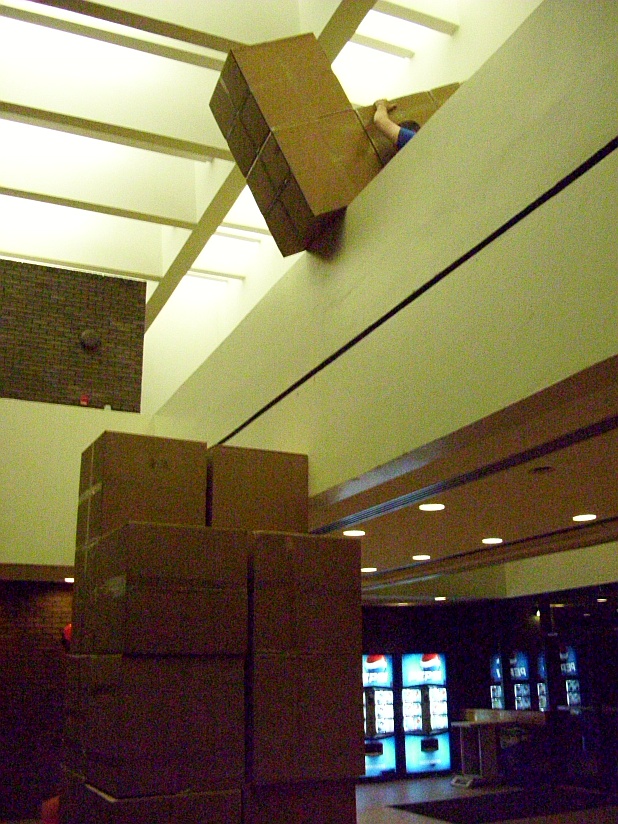
Luckily, there is a balcony around this lobby.
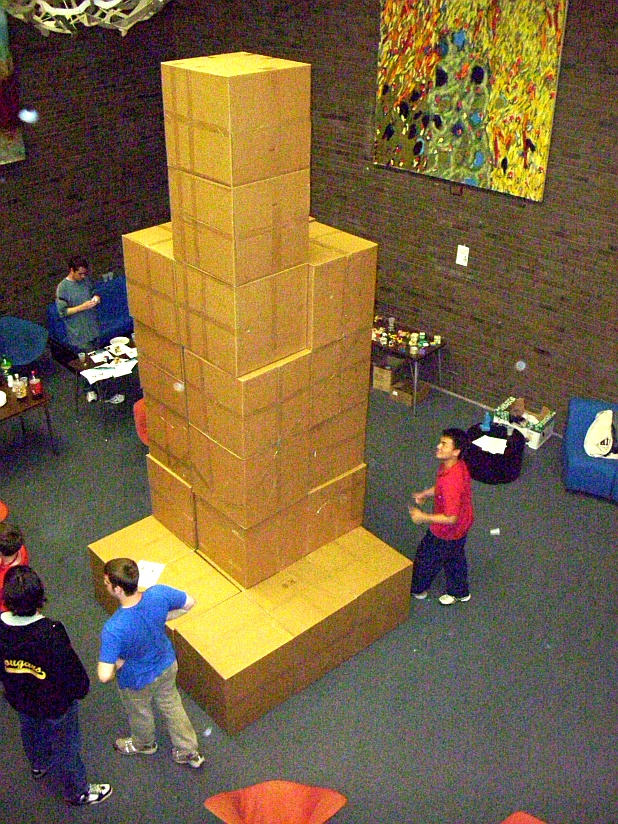 The Skyscraper
The Skyscraper. It's
fourteen feet tall.
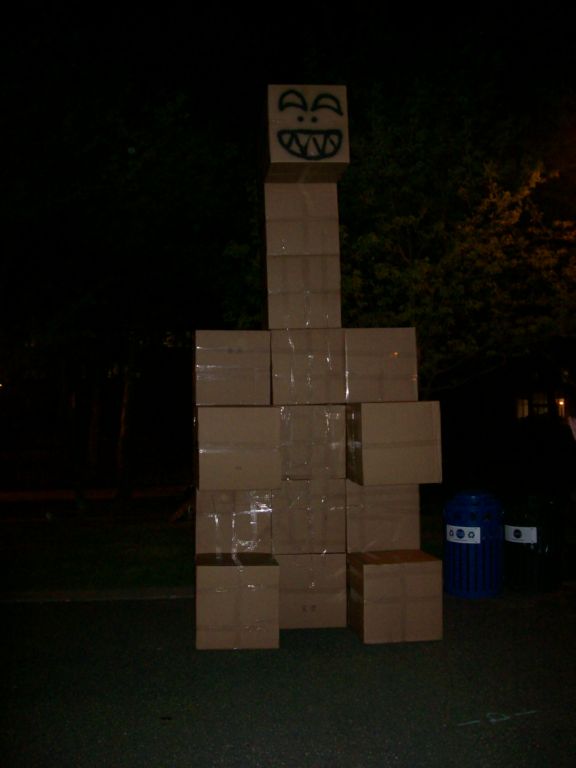
What happened to the parts later is a mystery, but there are
rumors of a 14-foot dinosaur being seen on campus that night...
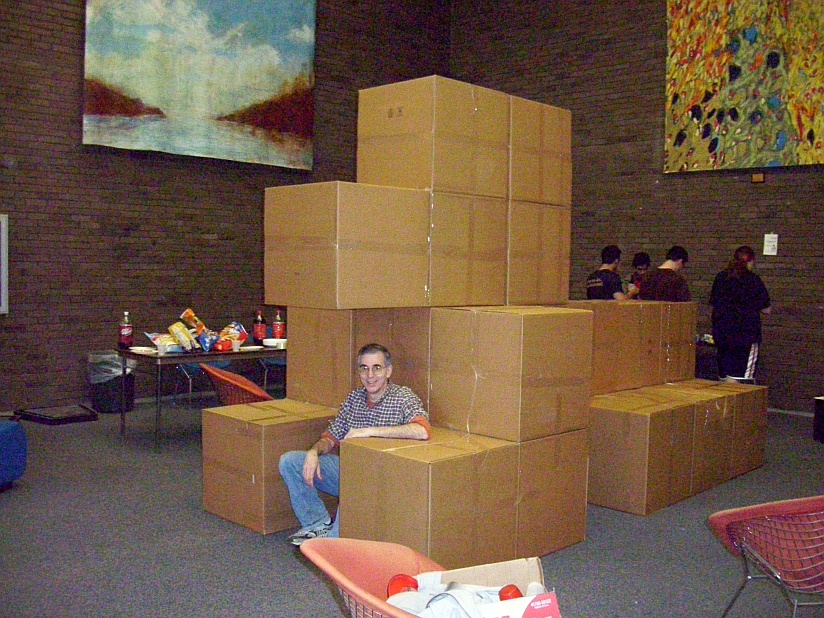
My favorite is
The Sphinx.

The Soma puzzle was designed by Piet Hein in the 1930s.
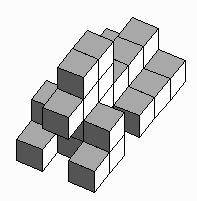
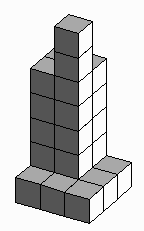
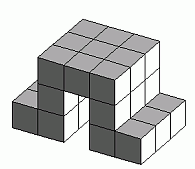
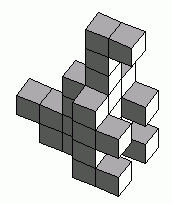
There are lots more challenges on the websites
here and
here, from which
I borrowed these drawings.
The boxes for this event were provided by
The
Math Midway, where attendees
can play with many cool things, including more giant Soma and other big
puzzles.
This project appeared as part of the
Math Monday series on the
Makezine blog, sponsored by the
Museum of Mathematics.




